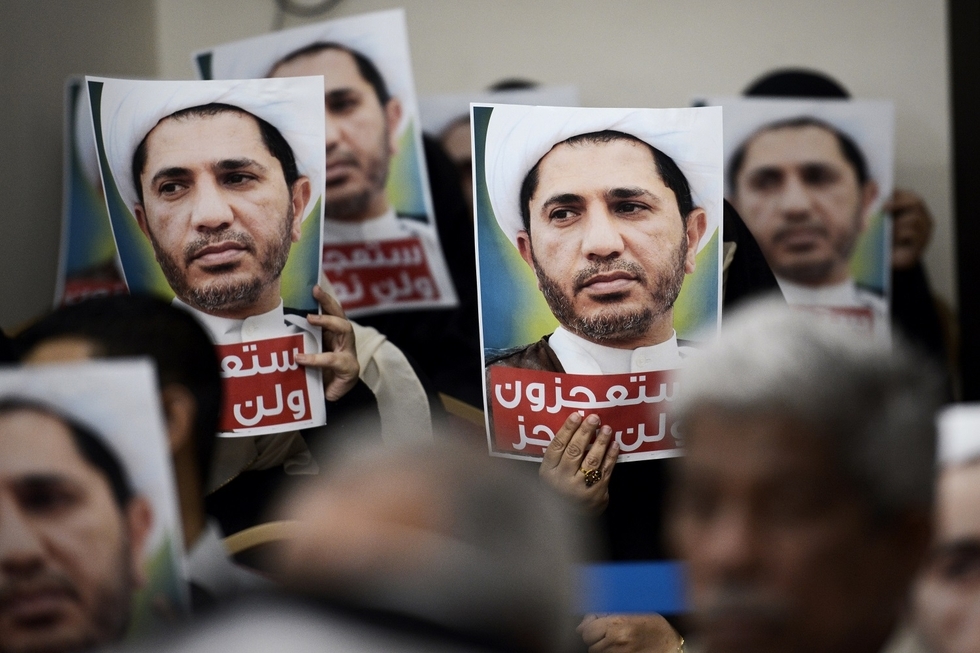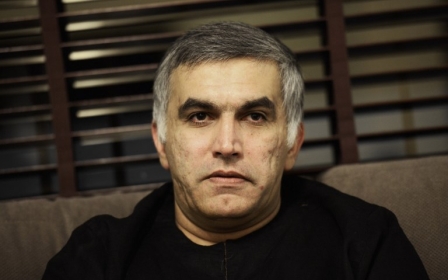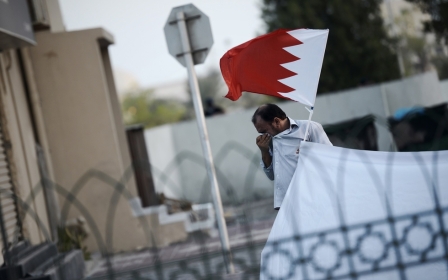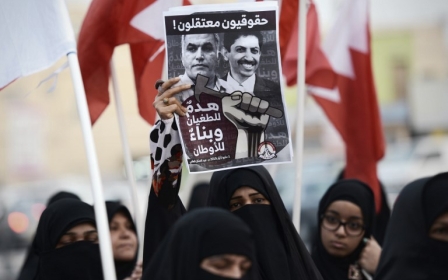Bahrain court acquits opposition leader Sheikh Ali Salman of spying

A Bahraini court acquitted the head of the main opposition party of all charges on Thursday in his trial for alleged spying for regional rival Qatar, a judicial source and activists said.
Sheikh Ali Salman, head of Bahrain's largest - and banned - opposition group, al-Wefaq, was found not guilty along with two of his aides, who were tried in absentia, a judicial source said on condition of anonymity.
"Sheikh Ali Salman was found innocent," Sheikh Maytham al-Salman, of the Bahrain Centre for Human Rights, told AFP. "We hope this ruling opens the way for dialogue and reconciliation."
Sheikh Ali nonetheless remains behind bars where he has been since 2014 to serve a four-year jail sentence on charges of inciting hatred.
In November, he pleaded not guilty to new charges of communicating with a foreign state to commit acts hostile to the state of Bahrain, specifically Qatar.
The charges came after Bahrain and its Gulf allies cut ties with Qatar last June over allegations that Doha supported Islamist groups and was too close to Iran. Qatar has denied the allegations.
Outlawed opposition
Tiny but strategic Bahrain has a Shia Muslim-majority population, but is ruled by a Sunni Muslim royal family that dominates all top government posts.
It has been gripped by civil unrest since 2011, when authorities crushed protests calling for a constitutional monarchy and an elected prime minister.
Both religious and secular opposition groups have since been banned and dozens of high-profile clerics and activists thrown behind bars.
Earlier this month, King Hamad banned members of dissolved opposition parties from running for election months ahead of scheduled parliamentary elections.
Al-Wefaq was the largest bloc in parliament before the 2011 protests. When they were crushed, all of the party members resigned their seats. The group was then dissolved by court order in 2016.
Bahrain's main secular opposition group, the National Democratic Action Society (Waad), has also been outlawed.
Waad's leader, Nabeel Rajab, is currently serving jail time in two separate cases linked to criticism of Bahrain's three-year-old military intervention in Yemen alongside its Gulf allies and its treatment of prisoners at home.
Bahrain's courts have come under heavy criticism from human rights groups, including Amnesty International and Human Rights Watch, for failing to meet the standards of fair trials.
They have taken up the cases of Salman and other dissidents, identifying them as prisoners of conscience.
King Hamad last year ratified a constitutional amendment that gives military courts the authority to try civilians charged with terrorism, a term that is loosely defined in the Bahraini penal code.
Bahrain is a key Western ally. It is home to the US Fifth Fleet and also houses a British naval base that opened in April.
New MEE newsletter: Jerusalem Dispatch
Sign up to get the latest insights and analysis on Israel-Palestine, alongside Turkey Unpacked and other MEE newsletters
Middle East Eye delivers independent and unrivalled coverage and analysis of the Middle East, North Africa and beyond. To learn more about republishing this content and the associated fees, please fill out this form. More about MEE can be found here.




